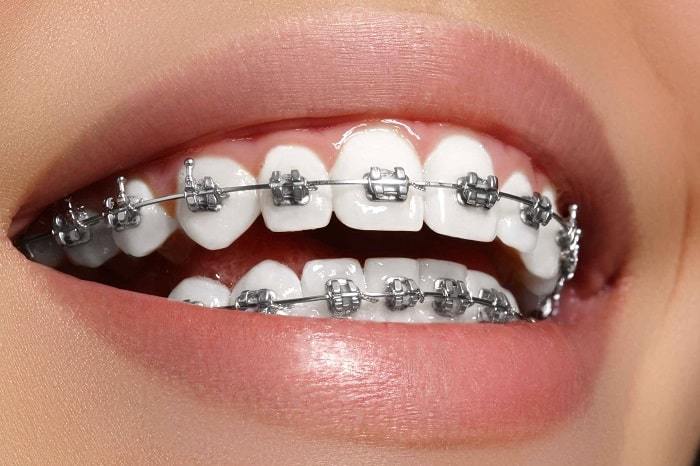
Maintaining clean teeth is essential for overall oral health, fresh breath, and a confident smile. Teeth cleaning is not just about aesthetics—it helps prevent cavities, gum disease, and other dental issues. This guide will cover everything you need to know about teeth cleaning, including methods, benefits, risks, and maintenance tips.
Why Is Teeth Cleaning Important?
Proper teeth cleaning removes plaque, tartar, and bacteria that can cause dental problems. Here are some key reasons why regular cleaning is crucial:
1. Prevents Cavities
Plaque buildup is the leading cause of tooth decay. Brushing and flossing help remove plaque and prevent cavities.
2. Prevents Gum Disease
Poor oral hygiene can lead to gingivitis and periodontal disease, which can result in tooth loss if left untreated.
3. Eliminates Bad Breath
Good oral hygiene removes bacteria and food particles that cause bad breath.
4. Maintains a Bright Smile
Regular cleaning helps remove stains from food, drinks, and tobacco, keeping your teeth white and healthy.
5. Supports Overall Health
Oral health is linked to overall health. Poor dental hygiene has been associated with heart disease, diabetes, and respiratory infections.
Effective Teeth Cleaning Methods
Several methods can help maintain clean and healthy teeth:
1. Brushing
Brushing twice a day with fluoride toothpaste is essential for removing plaque and bacteria.
Tips for Effective Brushing:
- Use a soft-bristled toothbrush.
- Brush for at least two minutes.
- Use circular motions to clean all surfaces of your teeth.
2. Flossing
Flossing removes food particles and plaque between teeth that a toothbrush can’t reach.
Flossing Tips:
- Use about 18 inches of floss.
- Gently glide the floss between teeth without snapping it.
- Floss at least once a day.
3. Mouthwash
Using an antimicrobial or fluoride mouthwash helps kill bacteria and strengthen enamel.
4. Professional Dental Cleaning
A dentist or hygienist performs deep cleaning procedures to remove plaque and tartar that regular brushing and flossing can’t.
Types of Professional Cleaning:
- Prophylaxis Cleaning: Regular cleaning for healthy teeth and gums.
- Scaling and Root Planing: Deep cleaning for patients with gum disease.
- Periodontal Maintenance: Ongoing treatment for those with gum disease.
5. Dietary Habits for Cleaner Teeth
Eating a balanced diet can help maintain oral health.
Best Foods for Healthy Teeth:
- Crunchy fruits and vegetables (e.g., apples, carrots) help clean teeth naturally.
- Dairy products (e.g., cheese, yogurt) strengthen enamel.
- Water helps rinse away food particles and bacteria.
Foods to Avoid:
- Sugary foods and drinks that cause cavities.
- Acidic foods and beverages that erode enamel.
- Sticky candies that cling to teeth.
Benefits of Regular Teeth Cleaning
Keeping your teeth clean offers numerous benefits:
1. Improved Oral Health
Reduces the risk of cavities, gum disease, and infections.
2. Better Breath
Removes bacteria that cause bad breath.
3. A Brighter Smile
Prevents staining and discoloration.
4. Prevention of Expensive Dental Treatments
Routine cleaning helps avoid costly procedures like fillings, root canals, and gum treatments.
5. Boosts Overall Well-Being
Good oral health contributes to overall health by reducing the risk of systemic diseases.
Risks and Side Effects of Teeth Cleaning
Although teeth cleaning is generally safe, some people may experience:
1. Tooth Sensitivity
Some individuals may feel temporary sensitivity to hot or cold after professional cleaning.
2. Gum Irritation
Brushing too hard or using improper flossing techniques can cause gum irritation.
3. Enamel Erosion
Overbrushing or using highly abrasive toothpaste can wear down enamel over time.
Tips for Maintaining Clean Teeth
To ensure your teeth stay clean and healthy, follow these simple tips:
1. Brush and Floss Daily
Consistency is key to preventing plaque buildup.
2. Use Fluoride Products
Fluoride helps strengthen enamel and prevent decay.
3. Visit Your Dentist Regularly
Professional checkups and cleanings should be scheduled every six months.
4. Stay Hydrated
Drinking water helps wash away bacteria and food particles.
5. Limit Sugary and Acidic Foods
Reducing sugar and acid intake helps prevent cavities and enamel erosion.
Conclusion
Teeth cleaning is a fundamental part of maintaining good oral hygiene and overall health. Whether you follow daily brushing and flossing routines, use mouthwash, or visit your dentist for professional cleanings, keeping your teeth clean will ensure a bright and healthy smile. By following these methods and tips, you can prevent dental problems and enjoy long-lasting oral health.